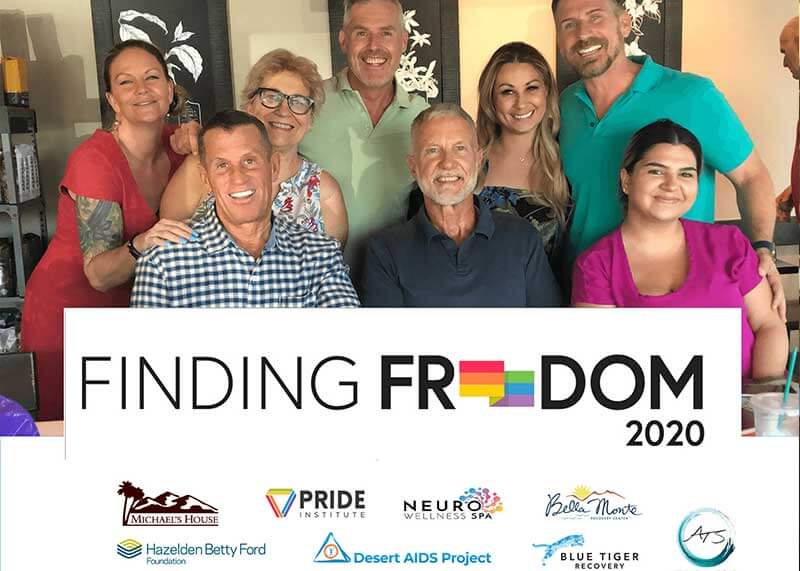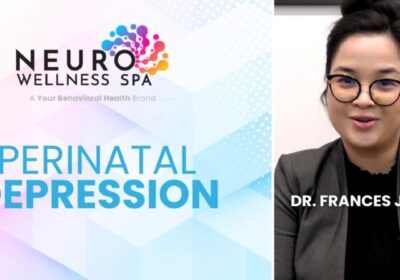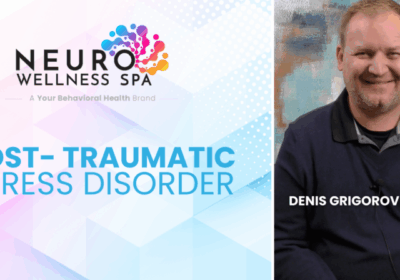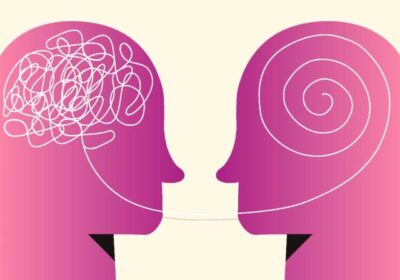December 2019 Newsletter
The Science of Making and Maintaining New Year’s Resolutions

If getting in shape, eating healthier or quitting tobacco products are among your list of New Year’s resolutions, you’re in good company. During the first few months of the year, three-quarters of Americans who commit to change, choose one or more of those resolutions. However, 80% of resolution-ers fail by the 2nd week of February and are left to face the remorse of disappointment.
Fortunately, science has some key insights about how we can do better at achieving our good intentions for behavior change. One such insight can be gained from studies that track the outcomes of individuals who make New Year’s resolutions.
What do the vast majority of successful resolvers have in common? Extensive research points to self-efficacy, or the belief that one can effect and maintain change.
Cultivate Self-Efficacy
Perhaps the most studied concept in the field of psychology, self-efficacy helps its cultivators sustain motivation and handle the inevitable stress and discomfort involved in altering behaviors.
While most people can identify goals they want to accomplish, many also realize that putting change into action is not quite as simple. Self-efficacy plays a major role in the execution of change—how goals, tasks and challenges are approached.
It’s not that highly self-efficacious people are immune to difficulty, mishaps or complications. On the contrary, people with a strong sense of self-efficacy view challenging problems as tasks to be mastered and recover quickly from setbacks as well as disappointment.
Think Critically About Setbacks
So, what does all this mean for eager resolution-ers? If you need to make a significant change in your life, remember that success starts from within. Before starting a new resolution, focus first on cultivating self-efficacy and developing a specific and measurable plan for change. Then, when challenges or setbacks arise, focus on how to remove or avoid those obstacles in the future.
Believe it or Not!?
Health Hystory
During the first few months of each new year, American gym sign-ups skyrocket. While treadmill access may be appealing to the resolute gym member, that particular piece of gym equipment is actually a torture device by design. Invented in the early 19th century for penal punishment, the treadmill aimed to reform stubborn convicts as they climbed its stairs to provide human power for gear-operated grain mills or water pumps.
Though various names were given to the device, including treadwheel, treadmill stuck because it truly fit the meaning. Due to the 20th century trend of eliminating hard labor from prisons, the treadmill largely disappeared. It wasn’t until the late 1960’s that its first exercise prototype hit the market, called the PaceMaster, at $399 (which is about $2,800 in today’s dollars).
An Exclusive Q&A with Clinical Psychologist, Dr. Nazanin Moali, PhD— Eating Disorder, Addiction and Trauma Expert
-
Tell us about your choice to specialize in addiction, eating disorders and trauma therapy and describe your current practice.
My first exposure to the field of psychology happened when I was an undergraduate student. While working for San Diego’s Veteran’s Affairs, I heard so many patient stories about finding long term recovery after enduring years of extreme trauma which inspired me to pursue a career in clinical psychology.
Since then, I’ve had the pleasure of working in various addiction recovery clinics, including methadone clinics, and learned that anyone, given the right circumstances and with enough support, can successfully recover.
Currently, I lead a private practice in Torrance where I work with teens and adults who struggle with eating disorders and addiction. In order for anyone with co-occurring disorders to sustain long recovery, it is essential that they seek integrative care for both conditions. Unfortunately, many people try to address their co-occurring disorders one at a time, and too often, this leads to improving one disorder while exacerbating symptoms of the other.
Since all addictions — alcohol or drugs, sexual compulsivity, internet addiction, and gambling— are attempts to regulate our internal emotional states, I teach my clients adaptive coping strategies to overcome their emotional pain and create a life worth living. I practice based on the principles of Acceptance and Commitment Therapy and I help my clients create lives based on their values.
-
What have you found most rewarding about this work?
The most rewarding part of my job is witnessing my clients finally find freedom from their destructive behaviors— something which many did not imagine possible. I truly believe every single person, no matter their level of acuity, is able to recover and thrive given the appropriate tools and support.
-
Between holiday food anxiety and New Year’s advertisements featuring unrealistically thin or fit men and women, how do you counsel your clients struggling with negative self-comparisons during this season?
We all get bombarded with unrealistic messages around changing our shapes or our bodies which can trigger our insecurities or negative self-images. Here are the few of tips I offer clients to overcome negative self-comparisons:
1. Identify the underlying desire and set an intention: Weight loss advertisements and images of fit people do not inherently stir our emotions, but they do suggest a promise and our underlying unmet desires may make us feel we need whatever it is that they’re selling. First, identify which underlying desire makes those images more attractive. Is it having more love and connection? Being accepted? Having more confidence? Next, identify current barriers in your life that prevent you from addressing that underlying need. Then, address those barriers to ensure you can take small steps every day to meet your underlying need.
2. Create a visual diet: I often invite my clients to review their social media feeds and unfollow or block accounts that promote triggering content. Although we may not do so with a conscious awareness, as we scroll down our feeds and get bombarded by images that hurt our self-image, it can negatively impact our mood and increase our insecurity. Instead, be mindful of what you expose yourself to on daily basis, and you will take the first step towards regaining control of your thoughts and emotions.
3. Create a recovery-focused resolution and celebrate small wins: Instead of allowing diet culture to decide your new year’s resolution, create a recovery-focused intention for the new year. Identify one thing that you are willing to commit to that would push you forward in your recovery and help you cultivate self-compassion. It could be as simple as keeping a daily gratitude journal or reaching out to your support system on a regular basis. Make sure to celebrate small wins throughout your journey.
-
Whether it’s New Year’s or any other time of the year, which therapeutic approaches have you found most successful with clients who are ready to make a big change, like quit an addictive behavior?
First, I suggest my clients develop a deep understand of why making this change is important to them by answering the following in a journal or otherwise:
How would your life be different if you make this change?
Name a few people would benefit from this change.
How would this change get you closer to creating a meaningful legacy for yourself?
Then, instead of trying to figure out each and every step necessary to create this big change, I help my clients focus on identifying just the first step. Their job is to take only that first step and not to worry about the rest! As they progress each day, they can build on the success of previous day and remember that recovery is never a linear process. As long as they are moving forward overall, that’s what matters.
Where We’ve Been…

Gratitude Ride
November 23, Palm Desert
Neuro Wellness Spa Palm Desert was honored to sponsor the Gratitude Ride in support of ABC Club’s Perinatal Program. It is always a pleasure to partner with incredible organizations in our community, especially those advocating for mental health and addiction recovery. Thank you to all of our friends, neighbors and colleagues who donated gifts for new moms in recovery!

Perinatal Mental Health Brunch at Crème de la Crepe
From left to right: Abby Withee, LMFT, Christina Kalzadilla, LMFT, Dr. Martha Koo, M.D., Bryana Kappa, LMFT, Vi Ballard, LMFT, Evy Jacobson, AMFT, Marina Braff, LMFT, and Emily Pedersen, MPH, M.S.Ed
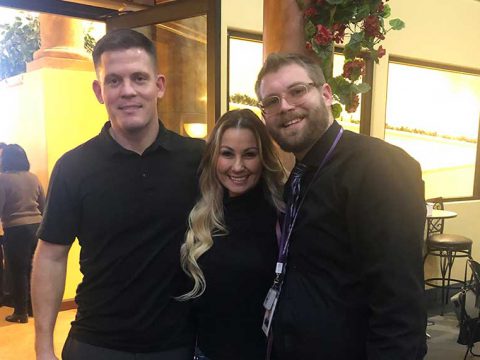
Breaking the Barriers in 2020
December 6, Palm Desert
Neuro Wellness Spa Palm Desert was pleased to sponsor the 7th Annual ATS and Delphi Holiday Party. It was an honor to gather with so many incredible mental health providers to discuss collaboration and breaking barriers in 2020. We look forward to an impactful year ahead.

Clear Recovery Center and Neuro Wellness Spa Staff Holiday Party
December 7, Dave & Buster’s
It was wonderful to gather with our friends and colleagues at Clear Recovery Center to celebrate the holiday season. We had a blast playing games and sharing a meal at Dave & Buster’s!
We’re more than a newsletter. We give tours, offer consultations and can even speak at your event.

